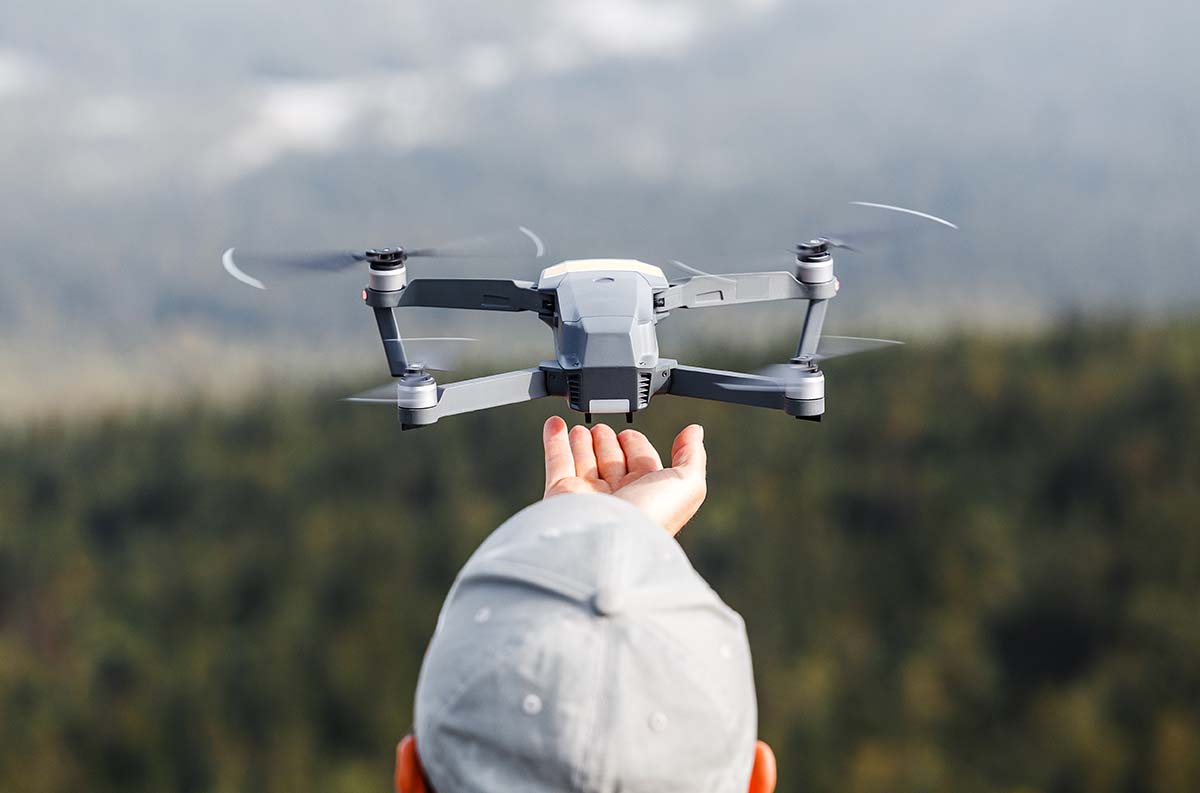If you're planning on bringing your drone to Turkey to capture some video for your YouTube channel or vlog, you may be wondering whether or not they're even allowed.
Can you fly a drone in Turkey?
The good news is that drones are allowed to be used in Turkey. But that's not to say you can fly them everywhere there are rules and restrictions that you should be aware of before flying your drone in Istanbul and other parts of Turkey.
Key takeaways
According to the General Directorate of Civil Aviation (DGCA), it is legal to fly a drone in Turkey as long as you comply with the regulations. These regulations include keeping a safe distance from airports, respecting the privacy of other people, and complying with any other local restrictions that may be in place. Failure to comply with these regulations could result in your drone being confiscated, fines, or even legal action.
Certain UAVs (drones) may not be brought into Turkey without first submitting an application (Form FR-03) to the customs office. If you're a foreigner and your drone weighs over 500g, you will need to apply for this approval from the Turkish DGCA to avoid having it confiscated at customs.
Drones weighing less than 500g can be brought into the country without this requirement.
Turkey drone laws: Legal regulations for drone use in Turkey
Here is an overview of the drone registration process and the restrictions on drone flying in Turkey.
Drone registration
In Turkey, as mentioned previously, some drones are subject to registration with the Directorate General of Civil Aviation (DGCA). You must register your drone with the DGCA if your drone weighs more than 500 grams. The registration process is straightforward and can be completed online (Form FR-03) or in person at a DGCA office.
When registering your drone, you will need to provide the following information:
- Your personal information (name, address, etc.)
- Drone make and model
- Drone serial number
- Purpose of drone use
Once your drone is registered, you will receive a registration certificate that you must carry with you whenever you fly your drone.
The permit is valid for a specific duration and location. If you plan to fly your drone in a different location or for a longer duration, you must obtain a new permit.
If you plan to use your drone for commercial purposes such as for film and television, you must register your drone with the Ministry of Transport and Infrastructure. Commercial drone operators must also obtain liability insurance and comply with all local regulations.
Drone flying restrictions
There are restrictions on where and how you can fly drones in Turkey. Some of the key restrictions include:
- Drones cannot fly above 120 meters (394 feet)
- Drones cannot weigh more than 4 kilograms (8.8 pounds) or travel with speeds of more than 50 km/h or higher for private/personal flights
- Drones cannot be flown near airports, military facilities, or other sensitive areas
- Drones cannot be flown over crowds of people or in residential areas without prior permission from the DGCA
- Drones cannot fly near emergency response teams or events
Violating any of these restrictions can result in fines or legal action.
Restricted zones
Restricted zones are areas where drone flying is prohibited. These areas are enforced for security, privacy, and safety reasons.
Some of the restricted zones when flying a drone in Turkey include:
- Airports
- Military zones
- Government buildings
- Historical sites
Allowed zones
Allowed zones are areas where drone flying is permitted. However, there are still rules and regulations that must be followed when flying a drone in these zones.
Some of the allowed zones for drone flying in Turkey:
- Open areas: You can fly your drone in open areas, such as parks, fields, and beaches.
- Designated areas: Some areas have been designated for drone flying. These areas are usually marked with signs or have been listed on official websites.
Penalties for violating drone regulations
If you do not follow the drone regulations in Turkey, you can face serious penalties. Some of the penalties include:
- Fines: If you violate drone regulations, you may be fined. The amount of the fine can vary depending on the severity of the violation. For example, if you fly your drone in a restricted area, you may face a higher fine than if you fly it too high.
- Confiscation of your drone: If you violate drone regulations, your drone may be confiscated. This means that you will not be able to use it again, and you may not be able to get it back.
- Imprisonment: In some cases, violating drone regulations can result in imprisonment. For example, if you fly your drone in a restricted area or use it for illegal activities, you may face imprisonment.
If you are unsure about the regulations or have any questions, it is best to consult with a legal professional or contact the relevant authorities for guidance.
In addition to the penalties listed above, there could be other consequences for irresponsible drone use. For example, if you cause damage to property or injure someone while flying your drone, you may be held liable for any damages or injuries.
We hope that you can avoid any legal issues while flying your drone in Turkey. There are so many amazing places and sights to be captured from the sky - happy flying!
Disclaimer
We do our best to provide the most accurate and helpful information, but rules and procedures can change at short notice. Your experience could be different depending on your country of origin and the locality and office you attend. For the most current information check official government sources and speak to a local attorney or professional.

I’m a writer and graphic designer currently living in Turkey with my family. I enjoy learning language, great food (chicken kebab is a favourite at the moment) and experiencing places less-traveled.




